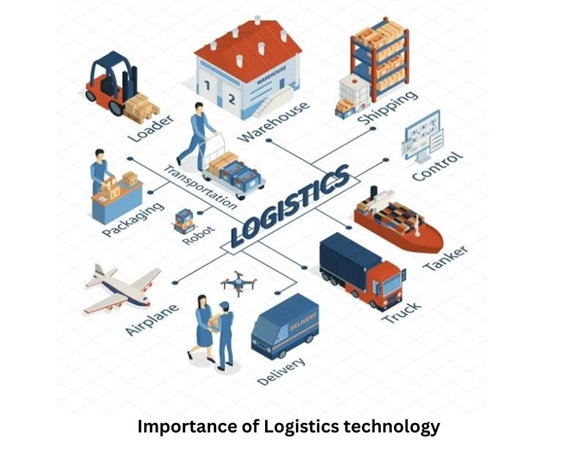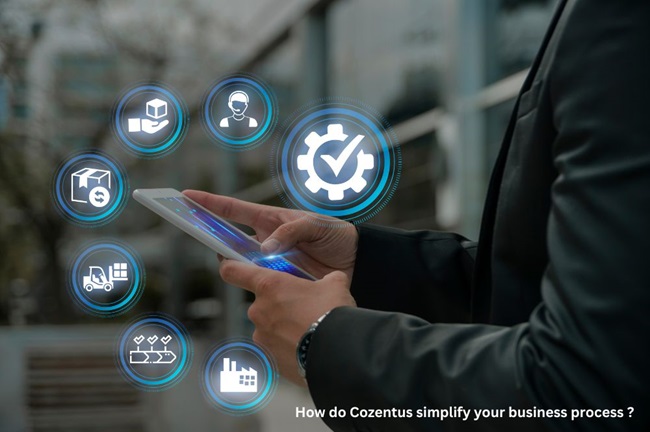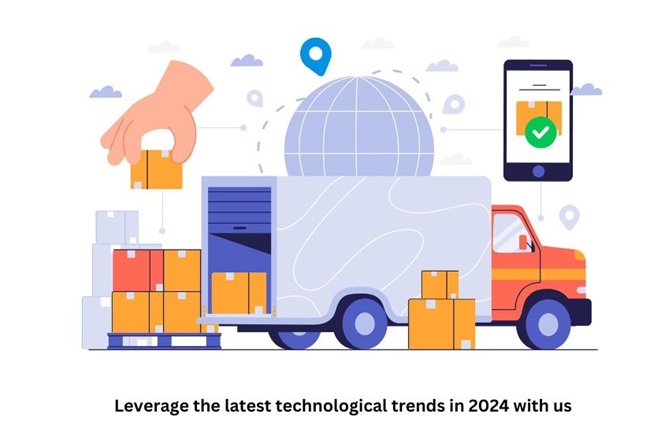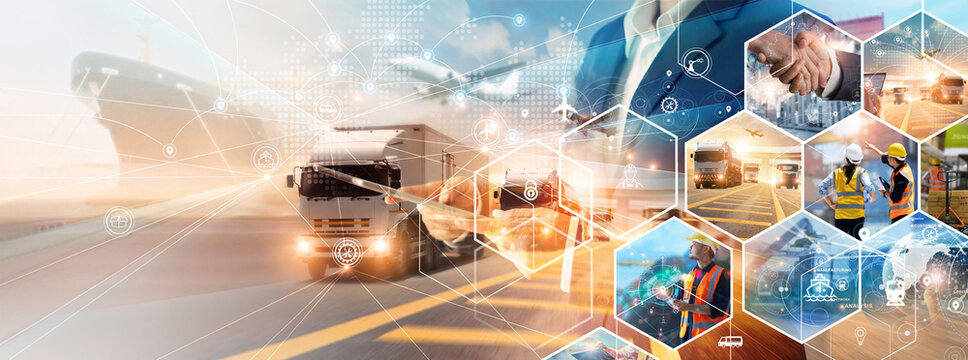As we navigate through 2024 and beyond, the logistics sector keeps up with technological progress, automating processes, and preserving the environment. Adapting to new-age technologies has become an important strategy to stay ahead of today's competitive market. However, it's not easy to make a winning deal every time. But it is possible if we are driven by proper innovative technologies that help transform how goods are moved, stored, and delivered.
How do you upgrade ?
Well, here is the road to greater visibility. To begin with, firms need to first embrace the technological trends that are seamlessly shaking up the industry in unprecedented ways.
In this blog post, we will together prepare ourselves to discover the leading advanced technologies reshaping the logistics industry.
Let's get started!
What is Logistics technology and why is it so important ?

Logistics technology uses digital tools, software, and new technology to make logistics operations better. It includes managing transportation and warehouses, tracking inventory, finding the best routes, and seeing the supply chain. It allows both machinery, vehicles, and computer software systems.
Using technology helps businesses achieve faster delivery, make customers happier, and be more competitive worldwide.
Why is it so important?
With the growth of globalization, it is essential for companies to succeed by supporting growth, improving customer satisfaction, and promoting repeat business. This leads to happier customers and improved profitability. It is crucial for several reasons, including:
- Effective SCM (supply chain management)
- International trade and growth
- Timely delivery and customer satisfaction
- Cost reduction
- Environmental sustainability
- Staying competitive
Top technological trends of logistics in 2024
New technologies and consumer preferences are the key reasons behind the significant changes in the logistics industry. Let's examine some key changes that will alter the way companies operate in this sector starting in 2024.
1. Automation:
By automating tasks, your company can save on labor costs, improve efficiency, streamline in-house operations, and reduce overall expenses. Thus, it helps the logistics team focus on finding ways to improve other processes with automation. Some of the automated systems, such as Robotic Process Automation (RPA), Warehouse automation and the most latest advancements in autonomous vehicles
Automation helps in tasks like order processing, inventory management, minimizing errors, optimizing workflows, enhancing supply chain visibility, and accelerating the order fulfillment process.
Its main goal is to lessen the need for human involvement while ensuring smooth operations in various areas like sales, sourcing, planning, purchasing, and distribution. As a result, automation remains a key driver of success in the logistics industry in 2024 and beyond.
2. Internet of things (IOT)
Surprisingly, IoT as a game-changer in supply chain visibility isn't an exaggeration; it's quickly becoming a must-have. Why? IoT gives us great visibility and connection, and it provides lots of data to study. It integrates everything in the supply chain, like staff, warehouses, trucks, and shipments, using sensor technologies and cloud applications. This connection makes logistics smarter, more transparent, and better at responding quickly.
IoT-enabled solutions, such as smart labels, could completely change the logistics industry. It is believed that the new smart label technology, called "Smart Printables," will open exciting possibilities worldwide.
To keep it clear, we use Bluetooth connections to track the shipments and monitor them. Now, how do they differ? Because of their small size and shape. Printable batteries and ever-smaller microchips can be enabled by these batteries, as they require very little energy.
3. Cloud computing:
Cloud-based logistics systems are gaining popularity in the industry. Because they eliminate connectivity obstacles, letting businesses share data and work together securely. Adopting this technology offers significant advantages for companies including pay-per-use models with minimal upfront costs.
With this technology, you can manage various tasks, like
- Inventory
- Track shipments
- Optimize routes
- Automate processes
Thus, by integrating cloud computing, firms can bring about various changes in the market. That includes improving customer satisfaction and maintaining a competitive edge in this digital era of logistics.
4. Artificial Intelligence (AI) & Machine Learning (ML):
AI and machine learning have been around in logistics for a while. But recent advancements have made them even more useful. These advanced tools can predict future demand accurately and helps to avoid inventory problems. This aids by looking at past data, current trends, and subtle patterns.
Did you know? It's no surprise that 75% of big warehouses will use AI and ML by 2026. These smart systems can adjust to changes in warehouse needs and keep operations smooth.
Additionally, AI and machine learning can find the best routes for transportation, considering factors like traffic and weather. For example, Carrier Logistics Inc.'s recent innovation uses AI to
- Plan routes
- Assign shipments automatically
- Cutting costs and ensuring timely deliveries making customers happy and boosting the company's reputation.
5. Advanced Data & Analytics:
Logistics companies gather a large amount of data. They need to implement effective data management strategies to enhance improvement and reduce costs in the future. DCSA has taken a significant step forward by setting new data standards for container shipping and its industry blueprint. It paves the way to identify and mitigate risks and optimize the flow of goods from suppliers to customers.
Many businesses are now choosing to refine their data and transform it into sophisticated statistics to enhance their operations. Integrating this technology can inform predictive analysis and forecasting models. By analyzing these data and external factors, companies can
- Anticipate demand
- Optimize inventory levels
- Improve resource allocation
6. Robotics:
At present, it is estimated that 80% of the warehouses rely on manual operations, indicating ample opportunities for improvement. Robotics have significantly impacted various industries, including logistics. Technologies like
- Automated warehouses
- Robotic picking systems
- Autonomous delivery vehicles are revolutionizing logistics operations, leading to improved efficiency and cost-effectiveness.
- Automated warehouses
- Robotic picking systems
- Autonomous delivery vehicles are revolutionizing logistics operations, leading to improved efficiency and cost-effectiveness.
Robotics, encompassing autonomous drones, automated guided vehicles (AGVs), and robotic arms, are reshaping warehouse operations in 2024 and beyond. These robots collaborate seamlessly with human workers, performing tasks like picking, packing, and sorting with remarkable speed and precision. Consequently, warehouses are becoming more agile and adaptable, meeting the demands of businesses.
How do we simplify your process through these technologies?

Cozentus simplifies processes through cutting-edge technologies by streamlining workflows, enhancing efficiency, and minimizing complexity. Let us find out all about what Cozentus is offering. We are a neutral and transparent 3PL platform, providing comprehensive solutions for your logistics needs. Some of the services below:
- Through real-time AI monitoring and predictive analytics, Cozentus enables proactive risk management, allowing 3PLs to anticipate potential disruptions and take preemptive actions to minimize their impact.
- With Cozentus' expertise in data science and advance analytics, it analyzes large volumes of data to identify trends, patterns, and correlations that can inform strategic business decisions. This enables customers to optimize operations, improve efficiency, and enhance customer experiences.
- Cozentus leverages AI and ML to develop solutions that automate repetitive tasks, such as data entry, invoice processing, and report generation, improving operational efficiency and accuracy.
Bottom Line:

As we look to the future, it's clear that technology and sustainability are becoming more connected. In 2024, we'll gain valuable insights into how these trends will shape the logistics industry. As leaders in the field, we're embracing these changes, driving innovation, and promoting more efficient practices. These technical advancements address the complex challenges faced by transportation and logistics companies, helping them stay competitive and meet evolving customer expectations.
Cozentus is a trusted logistics partner that understands the importance of technology and tailored solutions in this ever-changing industry. We have the expertise to help you achieve your business goals through cutting-edge logistics technology solutions.
Our team is ready to turn your vision into reality by creating a highly efficient and cost-effective, innovative software solution customized to your organization's needs.
If you're seeking the ultimate solution to stay ahead in the logistics industry in 2024, look no further. We're here to guide you every step of the way as you leverage the latest logistics technology trends in 2024.
Recent Post
Subscribe to our newsletter
Stay updated on latest trends and news in the supply chain and logistics industry








